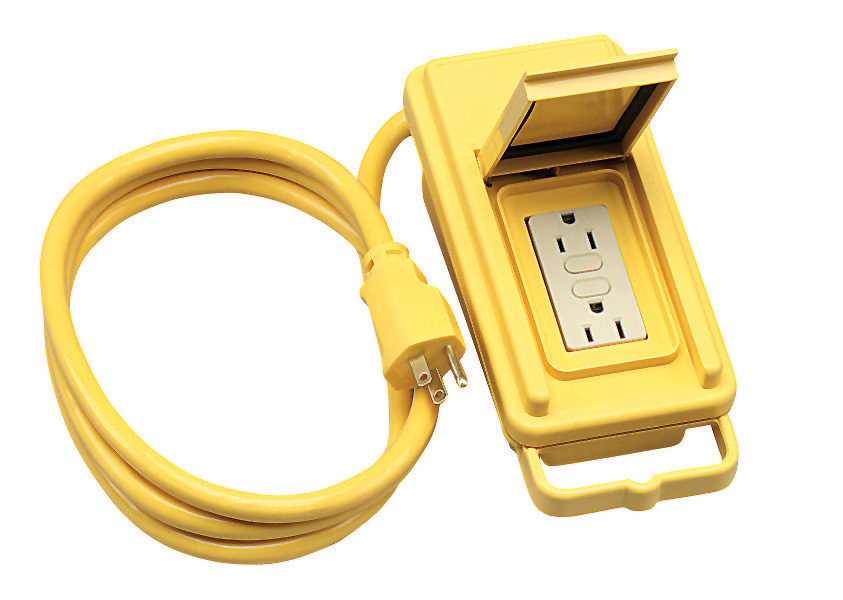The first reply is, IMO, is always important. Get a circuit tester, test every outlet you wanna plugged into, and if it isn't right, don't use it. If you can't find a correctly wired outlet, the place needs to be rewired so that at least one outlet/circuit is correct.
Back in the 80's I was diligent about getting all the amps into correct wiring. (I even had a reverse wired jumper for the venues that had the hot/neutral crossed). We all plugged into a 10 gauge extension so everybody was safe!
Good idea. I try to get our bands to all plug into the same circuit. Sometimes it isn't logistically convenient, but that is the best approach - not only from power perspective, but also a ground loop perspective. If it's not a real loud gig, I plug my Furman Voltage Regulator into a known, good circuit and we run extensions from that. But it is only good for 12-15 amps, not enough for a high volume/power situation.
6 ft. 12/3 GFCI Adapter Extension Cord
I've used heavy duty ground fault interrupters. Sometimes it works, other times it hasn't due to dirty power tripping the GFI. Never had a problem when run after my Furman, however. In fact, if you're sure your power is clean, I think it's a good idea to use some of these as extra insurance if a problem occurs. For example, if a high-voltage amp cap shorts to ground, you have hot voltage at chassis. But I would not use this as a
subsitute for properly wired power circuits.
When a club does its own sound, it frequently has the PA in a different location, running on a totally separate circuit. It's also important to know that
that circuit is also wired correctly. I have very occasionally (I think twice) run into problems where the stage was wired correctly and mics were still shocking us because the PA wasn't! The mic snake was coming from the FOH setup. Moral: always, always check to make sure mics aren't shocking you before you grab one hard, regardless of how much care you take setting up.

